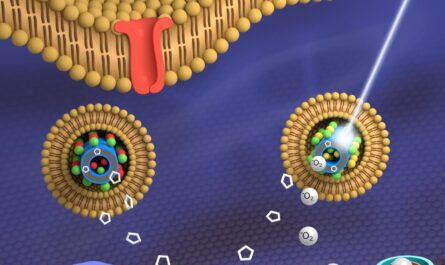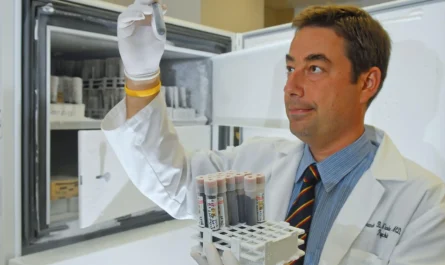The reaction of tumors to specific therapeutic approaches holds significant value in the fight against cancer for both patients and their doctors. With the advancement of CAR-T cell therapy, a promising treatment method, gaining insight into how tumors respond to this therapy in real-time is now possible, thanks to the efforts of researchers from the NMI Natural and Medical Sciences Institute in Reutlingen and the University Hospitals of Tübingen and Würzburg.
Professor Peter Loskill, a group leader at the NMI and a researcher at the University of Tübingen, explains the importance of this development, stating, “By individually investigating how exactly these tumor cells react to the planned therapy, we can anticipate potential side effects and minimize them.” The team’s findings were recently published in the journal Cell Stem Cell.
To achieve this breakthrough, the researchers employed tumor-on-chip technology, which involves an intricate in vitro system that replicates a breast cancer tumor using human cells. The tumor tissue was grown outside the body, and the researchers recreated the tumor’s complex 3D microenvironment and enabled blood vessel-like perfusion, allowing an artificial blood substitute to flow through the chip. The CAR-T cells were introduced to the tumor cells via this blood substitute, enabling researchers to directly observe their effects.
Cancerous tissue often manages to evade the human immune system, which is precisely what makes it so dangerous. In the human body, T cells, a type of white blood cell, are responsible for identifying and eliminating foreign structures. However, many tumors release signals that suppress their activity and function, effectively deceiving the immune system.
*Note:
1. Source: Coherent Market Insights, Public sources, Desk research
2. We have leveraged AI tools to mine information and compile it




